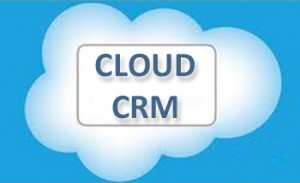 Cloud computing CRM is yet to be efficiently used by Enterprise customers. The main issues have been the level of integration, availability, security and costs of implementation. Addressing these issues by cloud CRM vendors will prove key to the adoption by Enterprise customers. So far for small and medium size enterprises (SMEs), the current cloud CRM solutions have proven to be effective and essential in hosting easy and not very complex applications. On the other hand CRM vendors have to make products and services that can easily scale, are fast to implement and cost effective for large enterprises who need to move their CRM to the cloud in order to remain successful and maximize ROI in the light of rapidly changing and evolving market dynamics.
Cloud computing CRM is yet to be efficiently used by Enterprise customers. The main issues have been the level of integration, availability, security and costs of implementation. Addressing these issues by cloud CRM vendors will prove key to the adoption by Enterprise customers. So far for small and medium size enterprises (SMEs), the current cloud CRM solutions have proven to be effective and essential in hosting easy and not very complex applications. On the other hand CRM vendors have to make products and services that can easily scale, are fast to implement and cost effective for large enterprises who need to move their CRM to the cloud in order to remain successful and maximize ROI in the light of rapidly changing and evolving market dynamics.
Enterprise cloud computing is now readily available and provides companies the ability to build and deliver business applications in the cloud. Enterprise cloud computing includes database, analytics, programmable user interface and Web site capabilities, also real-time workflows / integration / customization / social / mobile deployment.
Challenges of Enterprise CRM Cloud Computing
As with every new technology, innovators and early adopters are usually smaller size companies. For large companies the on-premise, licensed fee-based CRM applications is still preferred to the cloud CRM.
At the implementation onset, large companies (depending on the sector) will have to choose between the public cloud, private cloud or hybrid approach, which is a combination of private and public clouds. The security of the data will be the most important criteria to decide whether to use the private or public cloud.
The challenges include:
- Lack of Data governance – the public cloud is still seen as a security threat. Although it’s true that cloud computing is still a relatively new frontier without well-defined security standards, the best companies integrate security practices into their platforms’ architecture. Top cloud computing vendors utilize SSL (secure socket layer) technology, dynamic data security, firewalls and encoded session IDs. Enterprise that move their data to the cloud, lose the ability to govern this data. They can only rely on the safety that their service provider is guaranteeing.
- Challenging Integration – Integration of multiple business applications to the cloud, like ERP and HR services, is a timely and challenging task for enterprises.
- Slow Adoption – Enterprises with thousands of employees will need time to train their users on the new technology.
Advantages of Enterprise CRM Cloud Computing:
- Cost advantage – the enterprise has now the ability to reduce the need for networks, servers, software, storage, and space.
- Cut back on human capital – No more need for full-time staff for server maintenance; instead, these IT professionals can focus on other important tasks like troubleshooting and developing apps.
- Physical security and no constraints – All data is stored “in the cloud” and can be accessed from everywhere. All authorized users can access the same, real-time information from anywhere; using only an internet connection and their log-in information.
- Flexible subscription basis model – enterprise CRM Cloud based vendors offer pay as you go model.
- Storage Capacity and back up capability – Data is stored in the cloud with unlimited storage capacity without the need to add servers.
The future of enterprise cloud CRM will depend largely on the ability of the vendors to meet the large enterprise requirements. Security and scalability will be on the top list of requirements closely followed by ease of integration and cost.
i think still long way to go for cloud CRM for big enterprise orgs…
Security is a big factor, many larger companies are far happier having all of the servers physically under their own watch.
Also, as far as costs go, for a large company, it can be quite a lot cheaper to host all their own servers and have their own dedicated IT staff to manage it.